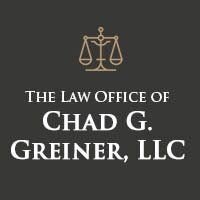Best Juvenile Law Lawyers in Georgia
Share your needs with us, get contacted by law firms.
Free. Takes 2 min.
Or refine your search by selecting a city:
List of the best lawyers in Georgia, United States
About Juvenile Law in Georgia, United States
Juvenile Law in Georgia focuses on legal matters involving minors, typically individuals under the age of 17. The goal of the juvenile justice system is different from the adult system, emphasizing rehabilitation, guidance, and support rather than solely punishment. Cases can involve issues like delinquency, dependency, child protection, truancy, and emancipation, all within specialized juvenile courts that consider the unique circumstances of youth and their families.
Why You May Need a Lawyer
Legal matters in Juvenile Law can be complex and impactful. Common situations where legal assistance may be necessary include:
- Your child has been accused of a crime (delinquency case)
- Concerns about child safety or abuse leading to dependency proceedings
- Questions about parental rights, guardianship, or adoption
- Truancy charges due to school absences
- Seeking emancipation for a minor
- When law enforcement questions or arrests a minor
- Issues involving foster care or Department of Family and Children Services (DFCS) investigations
Having a knowledgeable lawyer is essential to navigate court processes, protect rights, and advocate for the best interests of the child.
Local Laws Overview
Georgia’s juvenile laws are governed primarily by Title 15, Chapter 11 of the Official Code of Georgia Annotated (O.C.G.A.). Key aspects include:
- The age of jurisdiction for juvenile court is generally under 17 for delinquency matters
- Juvenile cases are confidential and proceedings are typically closed to the public to protect minors
- Delinquency cases involve minors accused of violating laws; dependency cases involve allegations of neglect or abuse
- Some serious offenses allow minors aged 13 and up to be tried as adults
- The court may order probation, counseling, diversion programs, foster care, or in serious cases, detention
- Parental involvement is usually required at every stage
- Minors are entitled to legal representation, and in many cases, a public defender can be appointed
- The Department of Family and Children Services (DFCS) is heavily involved in dependency and child welfare matters
Knowing local procedures and the rights of minors can help families respond effectively to any juvenile law issue in Georgia.
Frequently Asked Questions
What is considered a juvenile in Georgia?
In most cases, a juvenile is anyone under 17 years old facing delinquency charges. For certain serious offenses, children as young as 13 can be charged as adults.
What happens if my child is arrested?
The police may detain your child and notify you. Depending on the situation, your child could be released to you, held in a youth detention center, or appear before a juvenile judge within 72 hours to determine further action.
Will my child have a record if found guilty?
Juvenile records are not the same as adult criminal records and are generally confidential. In some situations, records can be sealed or restricted, but certain serious offenses may follow the child into adulthood.
Can a minor be tried as an adult in Georgia?
Yes, for some serious crimes like murder, rape, or armed robbery, juveniles aged 13 and up can be transferred to superior court and tried as adults.
What is a dependency case?
Dependency cases address situations where a child is alleged to be neglected, abused, or without proper care. These cases often involve DFCS and are designed to protect and support the child.
Does my child need a lawyer?
Yes, it is highly recommended. Juveniles have the right to an attorney at every stage, and the court can appoint a public defender if your family cannot afford legal representation.
Can parents be held responsible for their child's actions?
In some cases, parents may be ordered to participate in counseling or educational programs. They generally are not criminally charged for their child's actions but may have legal obligations depending on the situation.
How does truancy affect my child?
Truancy can result in petitions to juvenile court. The court may require attendance improvement plans, counseling, or community service. In rare cases, persistent neglect of education can lead to detention.
Can a child be removed from their home?
Yes, if a court finds that a child is in danger or not receiving proper care, the child may be placed in foster care or with a relative temporarily or, in some cases, permanently.
How can juvenile records be sealed in Georgia?
Georgia law allows for the sealing or expungement of some juvenile records if specific requirements are met. This process typically involves filing a petition with the juvenile court and demonstrating rehabilitation.
Additional Resources
If you need more information or assistance, consider reaching out to the following organizations:
- Georgia Department of Juvenile Justice
- Georgia Department of Family and Children Services (DFCS)
- Your local Juvenile Court Clerk’s Office
- State Bar of Georgia Lawyer Referral Service
- Georgia Legal Services Program
- Georgia Public Defender Council
- Children’s advocacy centers and nonprofit legal aid organizations
These resources can provide additional information, referrals, and sometimes direct assistance for families navigating the juvenile justice system.
Next Steps
If you or your child are facing a juvenile legal issue in Georgia, consider taking the following steps:
- Gather all relevant documents and information regarding the case
- Contact an experienced juvenile law attorney for an initial consultation
- Ask about your child's rights and the legal process in detail
- Attend all scheduled court appearances and meetings
- Cooperate with court orders and follow recommendations from legal counsel
- If you cannot afford a private attorney, request a public defender from the juvenile court
- Connect with support organizations and community resources for ongoing help
Navigating juvenile law in Georgia can be challenging, but understanding your rights and securing qualified legal support are the best first steps in ensuring the well-being of your child and family.
Lawzana helps you find the best lawyers and law firms in Georgia through a curated and pre-screened list of qualified legal professionals. Our platform offers rankings and detailed profiles of attorneys and law firms, allowing you to compare based on practice areas, including Juvenile Law, experience, and client feedback.
Each profile includes a description of the firm's areas of practice, client reviews, team members and partners, year of establishment, spoken languages, office locations, contact information, social media presence, and any published articles or resources. Most firms on our platform speak English and are experienced in both local and international legal matters.
Get a quote from top-rated law firms in Georgia, United States — quickly, securely, and without unnecessary hassle.
Disclaimer:
The information provided on this page is for general informational purposes only and does not constitute legal advice. While we strive to ensure the accuracy and relevance of the content, legal information may change over time, and interpretations of the law can vary. You should always consult with a qualified legal professional for advice specific to your situation.
We disclaim all liability for actions taken or not taken based on the content of this page. If you believe any information is incorrect or outdated, please contact us, and we will review and update it where appropriate.
Browse juvenile law law firms by city in Georgia
Refine your search by selecting a city.














